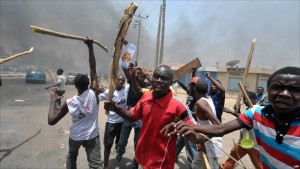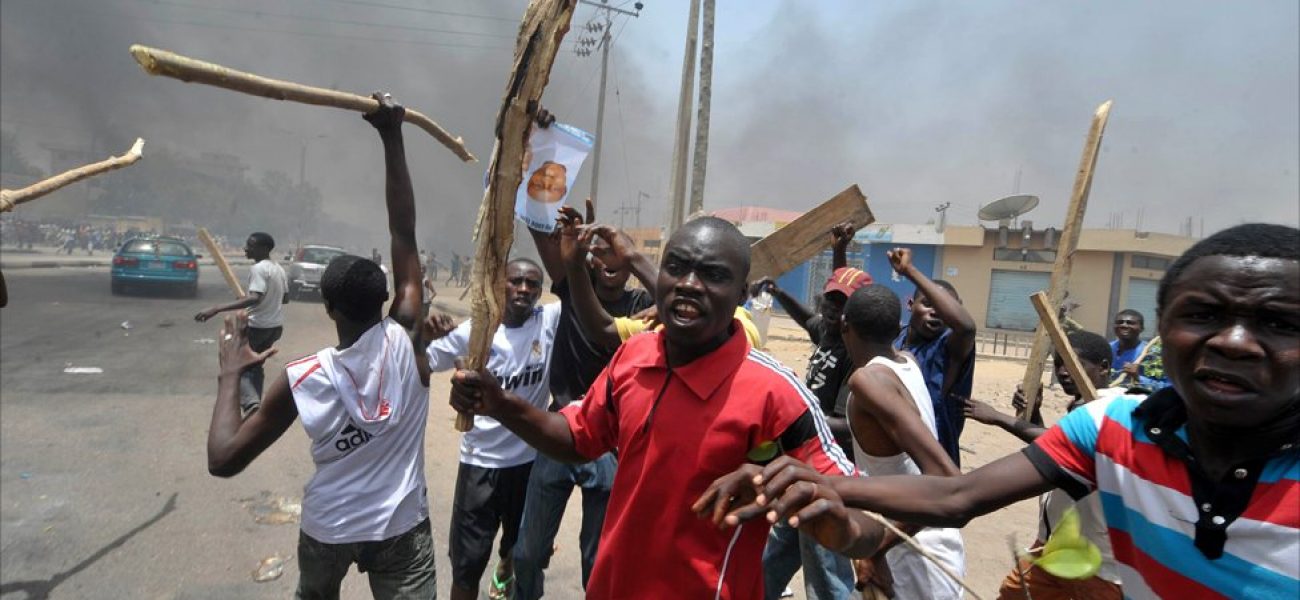 The recent attack on the APC rally on 17th February 2015 in Okrika, Rivers State has brought the issue of political violence once more, to the forefront of electoral discussions.
The recent attack on the APC rally on 17th February 2015 in Okrika, Rivers State has brought the issue of political violence once more, to the forefront of electoral discussions.
In the aforementioned APC rally in the National School Field in Rivers State, unidentified assailants set off 3 explosive devices leading to the death of a policeman and scores of people injured. Interestingly, the APC rally was earlier scheduled for the 24th of January but was postponed after an arsonist bombed the venue of the rally.
A contemporary examination of political violence in Nigeria also shows that Nigeria has not been the best example of a peaceful electoral process. For instance, it would be recalled that President Goodluck Jonathan’s electoral campaign group was attacked by angry youths in Jalingo, Yobe State who broke windshields and windows on several vehicles in his motorcade; leading the police to use tear gas and whips to disperse the mob. In a separate incident in Jalingo, the state secretariat of the People’s Democratic Party was also vandalized. Similar incidents on the Presidential convoy were also recorded in Katsina and Bauchi States in January with residents said to have been angry at the deployment of soldiers to guard President Jonathan’s campaign billboards rather than fighting the insurgency.
Political intolerance characterized by hate speech and non-issue based driven campaign has also been on the rise. On 24th February 2015, the House of Representatives resolved to investigate a statement credited to the Assistant Inspector General of Police, (AIG) Mr. Mbu Joseph Mbu. The AIG (Lagos) is alleged to have threatened to kill twenty to hundred Nigerian citizens in Lagos if any policeman is killed in the course of the elections. It will also be recalled that civil society organisations had berated Governor Ayodele Fayose of Ekiti State for sponsoring an advert that insinuated that the Presidential candidate of the APC, Major General Muhammad Buhari would die if elected into office. In the Abuja Accord, President Jonathan, General Buhari and 12 other Presidential aspirants promised to engage in issue-based campaigns. They also pledged to refrain from making public statements, declarations or speeches that have the capacity to incite violence before, during and after elections when signing the pact in January.
Some have blamed political violence on the lack of persecution and the low conviction rate of the perpetrators of electoral violence despite the provisions of the Electoral Act, 2010 (as amended). Therefore, a peaceful general election must be preceded by political education of electorates and party supporters alike. In addition, penalties must be enforced on those electoral offenders who choose to perpetrate violence in contravention of the Electoral Act.

